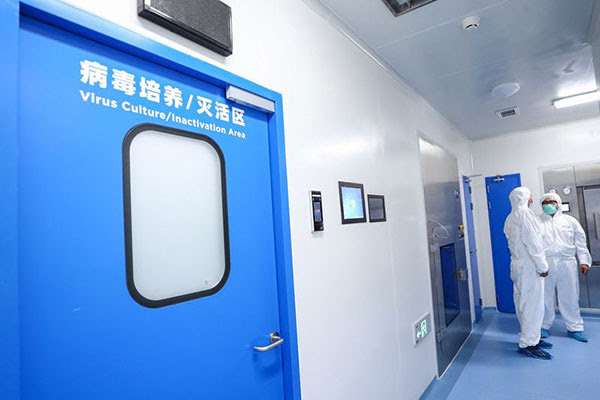
Research from China is crucial to understanding the COVID-19 pandemic. (Xinhua News Agency/Shutterstock)
China tightens grip on COVID-19 research
- Scientists in China say COVID-19 papers are being vetted by universities and that studies on the origin of the virus need government approval before being published. Some scientists welcome this process, saying it could stop poor-quality studies getting attention. But others fear China is trying to control information about the pandemic’s source, and that the vetting process could delay the release of valuable insights to help to control the virus. Documents obtained by Nature suggest that the Ministry of Education told universities early last month that they needed government approval before announcing results related to COVID-19. (Nature | 6 min read)
- Staff of 27 US Major League Baseball teams — “all the way from general managers to hot dog vendors” — have volunteered for a study of COVID-19 antibodies. The teams offer scientists the opportunity to gather data quickly from a wide demographic and geographic spread of people in the United States. Viral immunologist Daniel Eichner spotted the potential of the cohort because of his other gig: running a testing laboratory for performance-enhancing drugs. (NPR | 6 min read)
- More than 180 clinical trials of proposed COVID-19 drugs are already recruiting participants, and another 150 are registered to start soon. John-Arne Røttingen, the chair of the steering group of the World Heatlh Organization’s SOLIDARITY mega-trial, says a more collaborative approach is needed. “It's encouraging in the sense that it is really important to do trials,” says Røttingen, but “the scale of these trials is too small, and the variation in terms of how they are being run is too large. They aren’t really designed to answer the questions that need to be answered.” (Nature Reviews Drug Discovery | 7 min read)
- The first coronavirus was discovered in the 1960s by virologist June Almeida, who grew up in a Glasgow tenement in the UK and left school at age 16. Almeida mastered electron microscopy as a lab technician and went on to a PhD programme and storied career. Her discovery could have been recorded even sooner: an earlier paper featuring her images was rejected as “just bad pictures of influenza”. (BBC | 4 min read)
- Sociologist Alondra Nelson has gathered a crowdsourced list of resources dubbed the #CoronavirusSyllabus. “This exact thing hasn’t happened before, but something not dissimilar has happened before,” says Nelson. “These are some resources to help you contextualize this moment even if it is in some ways unprecedented.” (Institute for Advanced Study blog | 8 min read)
Read Nature’s continuously updated selection of the must-read papers and preprints on COVID-19.





















.png)












No hay comentarios:
Publicar un comentario